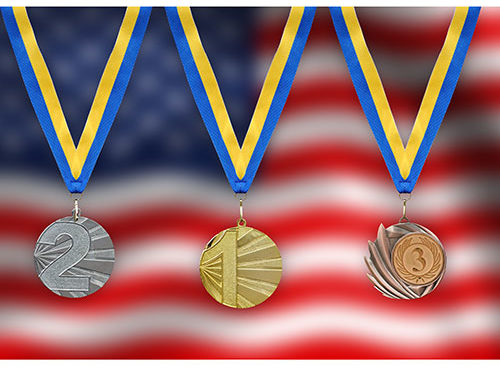It’s easy to conjecture that the 2011 U.S. men’s world team is stronger than the one that finished 4th at the 2010 world championships. But can we prove it?
Yes we can, and in a pretty big way.
Here’s a look at a possible (likely) world team finals lineup for the six-member team that was recently named to the upcoming worlds in Tokyo:
Floor
Jonathan Horton
Steven Legendre
Jake Dalton
Pommel Horse
Danell Leyva
John Orozco
Alex Naddour
Rings
Jake Dalton
John Orozco
Jonathan Horton
Vault
Jonathan Horton
Jake Dalton
Steven Legendre
P-Bars
John Orozco
Jonathan Horton
Danell Leyva
High Bar
John Orozco
Jonathan Horton
Danell Leyva
Now we can actually take the scores from each of these guys on the listed events from the recent Visa U.S. Championships, and compare them to the scores that the 2010 world team members put up at the same competition last year. In other words, it’s a battle of the 2010 U.S. World Team Finals Lineup vs. the 2011 U.S. World Team Finals Lineup, taking scores from the respective Visa Championships. I’ll use the best score each gymnast received between Days 1 and 2, and also take away the “Special Bonus” points that are awarded at the U.S. national competitions. Here are the results for both D-scores and Total Scores for each event, as well as combined totals for all six events (higher score between the two teams is in bold)
2010 and 2011 World Team Comparison, Based on Visa U.S. Championship Scores
| 2010 World Team | 2011 World Team | |
| Floor D-Score | 19.1 | 19.6 |
| Floor Total Score | 45.55 | 47.05 |
| Pommel Horse D-Score | 17.1 | 18.4 |
| Pommel Horse Total Score | 43.2 | 44.65 |
| Rings D-Score | 19.9 | 18.9 |
| Rings Total Score | 46.95 | 44.85 |
| Vault D-Score | 20.2 | 21.0 |
| Vault Total Score | 48.5 | 49.3 |
| P-Bars D-Score | 18.8 | 19.2 |
| P-Bars Total Score | 46.45 | 47.0 |
| High Bar D-Score | 20.2 | 20.7 |
| High Bar Total Score | 45.85 | 47.7 |
| Six-Event Total D-Score | 115.3 | 117.8 |
| Six-Event Overall Score | 276.5 | 280.15 |
What does this mean? It means that the 2011 U.S. men’s world team appears to be nearly four points stronger than the 2010 U.S. men’s world team, which includes about a 2.5 improvement in difficulty and the rest in execution. Rings is the only event where the 2010 world team was stronger, and this is understandable given Brandon Wynn was on that team. But it should be noted that Horton is capable of scoring higher on rings than he did at this year’s nationals (capable of a higher D-score), and will likely do so at the upcoming worlds. Because we’re comparing scores from the same competition (Visa U.S. Championships) between the two teams, we can feel comfortable that this is a fairly accurate assessment.
It would certainly be less reliable to compare these scores to those given at the 2010 world championships, but just for fun, we’ll do it anyway.
2010 Men’s World Team Finals Results
- China 274.997
- Japan 273.769
- Germany 271.252
- United States 268.012
Looking at these numbers, we can assume that the execution scoring was harsher at the world championships than it was at the U.S. national championships, given that the U.S. team’s hypothetical team score from their nationals was 8.5 points higher than it was at worlds, and would have theoretically won the gold medal for that matter. But if we assume the U.S. has improved by four points and add those four points to last year’s team, you can see they would have been in the 272-territory, quite a bit closer to Japan and China.
Of course, we’ll have to assume that China, Japan, and Germany have all made progress since last year as well and may very well score higher than their totals from last year. But I’d be hard-pressed to believe that any of those teams has improved as much as the United States has in the last year, and thus I believe this year’s team battle could tighten up considerably compared to last year’s. The improvement of the U.S. on pommel horse will play an absolutely vital role in its quest to land on the medal podium this year, and perhaps even put a little pressure on the two favorites.



Leave A Comment